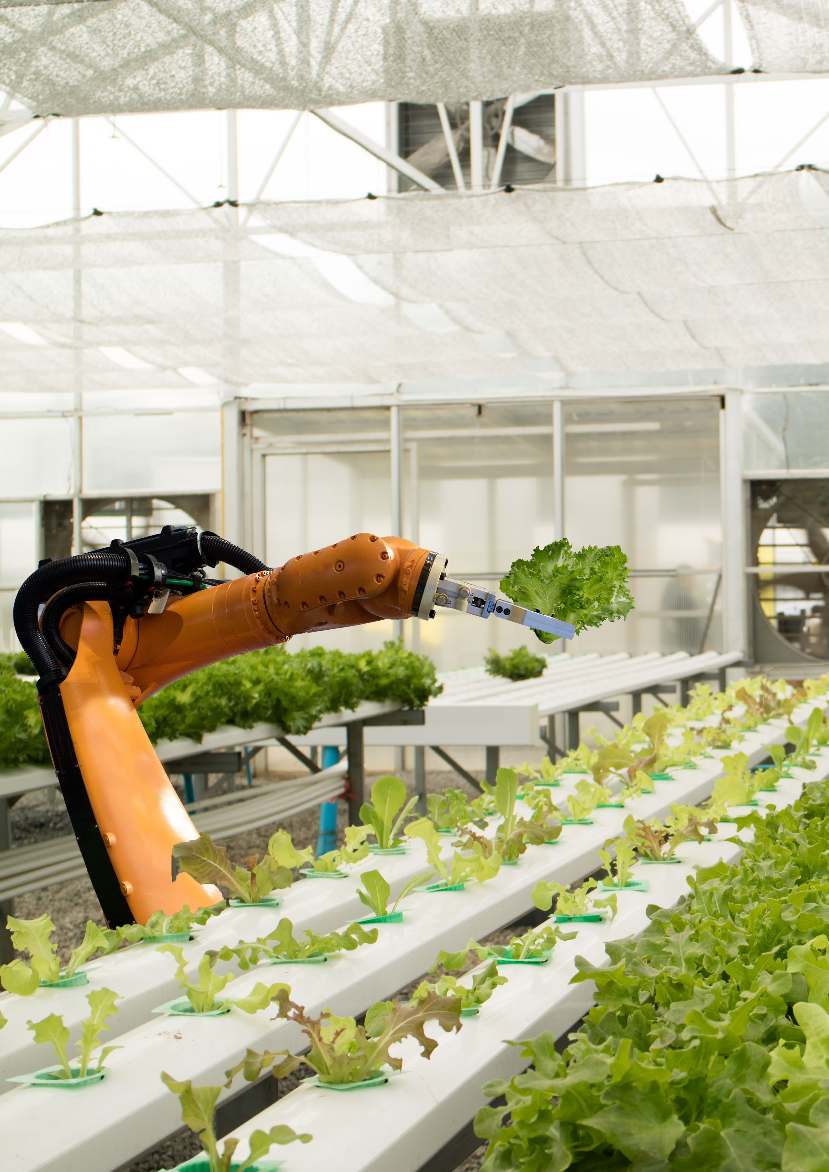Using AI to provide sustainable solutions

Transitioning to more sustainable practices is one of the key challenges for industry, both now and in the future. Advancements in artificial intelligence (AI) have already helped manufacturers more accurately forecast consumer demand, automate specific processes and improve control of production processes and systems in real time. Besides improving output-related performance indicators, these dvancements also have the potential to greatly economise on energy and resources. Data-based or simulation support methods are aiding in the improvement of production processes, in turn leading to an AI-based alignment of energy and resource demands within companies and production networks.
Roundtable on the Use of AI in Industrial Sustainability
With over 200 scientists currently working on and with AI, The University of Twente has been paying close attention to the development of Artificial Intelligence for quite some time. A series roundtable discussions, held over multiple afternoons, was devised to start indepth conversations among like-minded people from academia, industry and cluster organisations on the benefits, drawbacks and future development of artificial intelligence. The purpose of these discussions was to highlight areas where AI can be of great benefit to society as a whole and to rigorously discuss any problems or obstacles that interested parties might encounter when using or attempting to use AI.
The third roundtable discussion in the series was recently organised by the Digital Society Institute, with Sebastian Thiede as expert moderator. In this roundtable, we focused on the topic of Industrial Sustainability. Approximately 40 people attended, including personnel from the University of Twente and Radboud University, representing academia. Industry was represented by NS, VMI Group and Voortman. Cluster organisations like FME and iTanks also fielded participants.
The primary goals were to stimulate the use of smart industry/industry 4.0/data & AI in industry, for the purpose of making manufacturing more sustainable; and also to discover problems, unearth opportunities and find common ground for future joint objectives.
The group determined that there were some problems relating to each of the four application areas:
- Circularity – Recycled materials are more expensive than virgin materials.
- Energy & Resource Efficiency – Stock reduction and more efficient use of materials and logistics are needed. There is also a lack of reliable optimisation models that combine desired output volumes, quality and energy needs.
- Renewable Energy – There are difficulties in integrating factory energy needs with renewable energy production. Balancing supply and demand would be required.
- Design for Sustainability – There are difficulties in integrating innovative solutions into existing design methodologies.
The most immediate and far-reaching problems are lack of urgency, lack of acceptable business models and, most importantly, lack of understanding of possible outcomes.
Based upon the problem areas they identified, the group proposed the following Joint Objectives:

- Develop effective implementation strategies to adopt AI technologies.
- Strongly encourage the implementation of sustainable solutions. This can be hastened by creating a sense of urgency, highlighting economic viability and accentuating the whole value chain.
- Answer the why. Create models that make benefits and effects clear. Linking the benefits to goals helps people visualise outcomes and take personal ownership.
- Devise easier off-the-shelf software and hardware solutions supporting AI implementation. Possibly promote AIbased solutions ‘as a service’ to directly generate benefits.
- Create models that support decisionmaking that balances costs vs. sustainability. Offer advice along different dimensions.
The overall feeling created by the roundtable discussion was overwhelmingly positive. Great strides have already been made in this field and the future looks extremely promising, with a host of new industrial applications either in the design phase, under production or already in daily use. The key takeaway is that AI can certainly play a large part in aiding companies to become more sustainable.
As more companies move towards artificial intelligence to solve their sustainability issues, more solutions are being trialled, ensuring that a greater number of better outcomes are achieved.